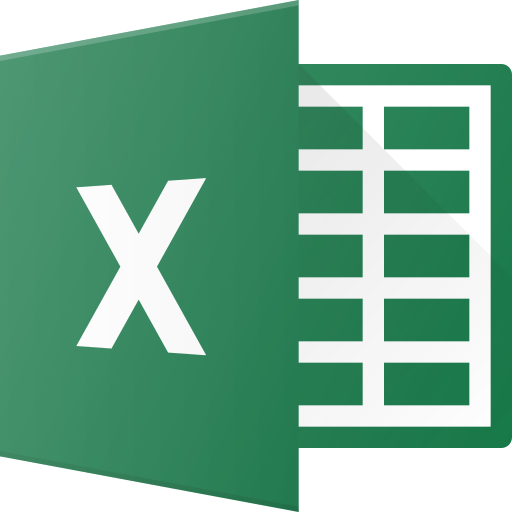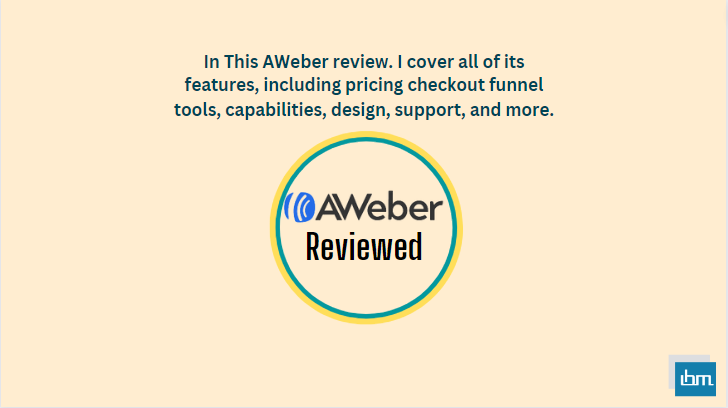Reviewed by: Jayprakash Prajapati | Last updated on February, 22, 2026
Starting and running a small business requires more than just passion and a good idea it demands a deep understanding of financial decision-making. Every rupee or dollar invested in your business must serve a purpose, bring value, or return a profit. Whether you’re just launching or looking to scale, financial decisions impact cash flow, growth, profitability, and sustainability.
In this guide, we will cover everything from choosing the right small business type to managing daily financial decisions and planning for the long term. Whether you’re a solo entrepreneur, freelancer, or small business owner, this guide will help you make informed financial choices to build a stable, growing business.
Why Financial Decision-Making Is Crucial for Small Businesses
Many small businesses fail not because of poor products or lack of effort, but due to poor financial decisions. Here’s why smart financial management is non-negotiable:
- Limited resources: Small businesses often operate on tight budgets.
- Cash flow sensitivity: A single bad financial decision can drain cash reserves.
- Growth planning: Expansion needs capital, and capital requires good financial planning.
- Sustainability: Smart financial choices help ensure long-term survival.
By understanding your numbers, planning wisely, and preparing for risks, you can steer your business in the right direction.
Financial decision making isn’t about being perfect with numbers it’s about being intentional with your money. Every rupee you spend or save is a vote for your business’s future. Small business success doesn’t come from overnight profits, but from daily financial clarity, consistent tracking, and smart risk-taking. Learn your numbers, trust the process, and build a business that lasts beyond trends.
Different Types of Small Businesses (With Financial Implications)
Before diving into specific financial decisions, it’s important to understand the various types of small businesses and how financial needs differ between them.
1. Sole Proprietorship:
This is the simplest form of business ownership, where one person owns and operates the business.
Financial Considerations:
- Lower startup costs.
- Business and personal finances are legally the same.
- Income is taxed once, but you’re personally liable for any debts.
Best for: Freelancers, consultants, small-scale sellers.
2. Partnership:
A business owned by two or more individuals sharing profits and responsibilities.
Financial Considerations:
- Capital investment shared.
- Shared financial liability.
- Profits taxed as personal income to each partner.
Best for: Joint ventures, professional services (law, accounting, etc.).
3. Limited Liability Company (LLC):
An LLC offers legal separation between the business and the owner(s).
Financial Considerations:
- Limited personal liability.
- Flexible profit distribution.
- Initial costs and paperwork are higher than sole proprietorship.
Best for: Small businesses looking for liability protection.
4. Corporation (Private Limited Company):
A corporation is a separate legal entity owned by shareholders.
Financial Considerations:
- Higher costs to establish and maintain.
- Can raise capital through stock.
- Subject to double taxation (corporate and personal dividends).
Best for: Startups planning to scale or seek outside investors.
5. Franchise:
You operate under an established brand and business model.
Financial Considerations:
- Franchise fees and ongoing royalties.
- Lower risk but less control.
- Easier access to financing.
Best for: Entrepreneurs seeking a proven model with support.
Key Financial Decisions Every Small Business Must Make
1. Startup Funding: Where Will the Money Come From?
Every business starts with the question: how do I fund this idea?
Options Include:
- Personal savings.
- Loans (bank, NBFC, government schemes).
- Angel investors.
- Crowdfunding.
- Bootstrapping (reinvesting earnings).
Your choice will determine the level of control, debt obligation, and financial pressure you face.
2. Budgeting: Creating a Financial Plan:
Budgeting isn’t just about cutting costs it’s about strategic planning. A good budget tells your money where to go and prevents wastage.
How to Create a Budget:
- Estimate fixed and variable costs.
- Set revenue goals.
- Allocate funds for marketing, operations, taxes, and emergency needs.
- Monitor and adjust monthly.
3. Pricing Strategy: What Should You Charge?
Underpricing might win customers initially but could lead to losses. Overpricing may turn them away. Pricing decisions affect your profit margins, brand positioning, and customer perception.
Tips:
- Consider production costs, market demand, and competition.
- Use psychological pricing (e.g., 999 instead of 1000).
- Revisit pricing regularly.
4. Expense Management: Where Can You Save?
Small businesses should constantly review operational costs. Reduce expenses without compromising on quality or service.
Ways to Save:
- Automate tasks (accounting, CRM).
- Negotiate with suppliers.
- Outsource instead of hiring full-time staff.
- Use open-source or budget-friendly tools.
5. Cash Flow Management: Staying Liquid
Cash flow is the lifeblood of your business. Even profitable companies can fail if they can’t pay their bills on time.
Key Practices:
- Monitor receivables and payables.
- Encourage early payments (discounts).
- Delay non-essential expenses.
- Keep a buffer or emergency fund.
6. Investment in Growth
When should you invest in marketing, hiring, or new equipment?
Decision Factors:
- ROI (Return on Investment).
- Risk analysis.
- Opportunity cost (what are you sacrificing?).
- Market demand and timing.
Don’t rush growth decisions. Build on data, not assumptions.
Your business structure shapes your financial path. A sole proprietor takes full control and full risk. An LLC protects your assets but requires smart planning. The right business type isn’t about what’s popular, it’s about what supports your goals, your cash flow, and your vision. Choose wisely because structure is the foundation on which every financial decision stands.
Tools and Resources for Financial Management
Accounting Software:
- Zoho Books, QuickBooks, Tally – track income, expenses, invoices.
- Helps with GST compliance and audit readiness.
Budgeting Tools:
- Google Sheets with templates.
- Mint or YNAB (You Need A Budget) for small-scale personal-business finance integration.
Financial Advisors and Consultants:
- Hire a part-time CA or virtual CFO if budget allows.
- Get regular financial health checks.
Government Schemes:
In India, small businesses can access:
- Mudra Loans.
- Startup India benefits.
- SIDBI funding options.
- Credit Guarantee Fund Trust for Micro and Small Enterprises (CGTMSE).
Financial Metrics Small Businesses Should Track
To make informed decisions, you must understand key financial metrics:
- Gross Profit Margin – Revenue minus cost of goods sold (COGS).
- Net Profit Margin – What’s left after all expenses.
- Break-Even Point – When income = costs.
- Operating Cash Flow – Cash generated from normal operations.
- Accounts Receivable Days – How fast you collect money from customers.
- Inventory Turnover – How quickly you sell your stock.
- Debt-to-Equity Ratio – Financial leverage indicator.
Tracking these numbers will give you a clear picture of your financial health.
Common Financial Mistakes to Avoid.
- Ignoring bookkeeping: Poor records = poor decisions.
- Mixing personal and business accounts: Leads to confusion and tax trouble.
- Over-investing too soon: Grow steadily, not recklessly.
- Not saving for taxes: Always allocate monthly.
- Undervaluing time: Your time is money. Outsource low-impact tasks.
Avoiding these errors can save you from major financial setbacks.
How Business Type Influences Financial Decisions.
Let’s say you’re a freelancer (sole proprietor) – your biggest financial focus will be on cash flow and client payments.
If you’re running a small eCommerce store under an LLP, your decisions will include inventory investment, shipping costs, and tax planning.
If you run a private limited company, you’ll focus on investor relations, payroll, profit distribution, and regulatory compliance.
The key takeaway: Your business structure deeply impacts how you plan, invest, and manage your money.
Planning for Taxes and Compliance
Taxation is unavoidable but manageable. Stay compliant and avoid penalties.
Tips:
- Hire a professional accountant or use software for returns.
- Register for GST if turnover exceeds threshold.
- Maintain invoices, expense receipts, and bank statements.
Advance Tax: If your expected tax liability exceeds ₹10,000/year, you’re expected to pay it in installments.
Financial Planning for Business Sustainability.
Planning isn’t just about next month it’s about surviving and thriving for years.
Sustainability Tips:
- Diversify revenue streams.
- Build a 6-month emergency fund.
- Reinvest profits.
- Stay debt-conscious.
- Keep learning: take financial literacy courses or join entrepreneur forums.
Short-term profits are good, but long term sustainability is better. Small businesses grow strong when owners think beyond today’s sales and plan for tomorrow’s challenges. Financial decisions made with patience and data not panic are the ones that fuel real progress. Don’t rush growth; grow with purpose, protect your cash, and let your decisions reflect the future you want.
Final Thoughts.
Financial decision-making is not a one-time task it’s a continuous process that evolves with your business. Whether you’re choosing a business type, creating a pricing model, or deciding on your next investment, the best decisions come from clarity, data, and discipline.
By using this guide as your compass, you can confidently navigate the financial landscape of small business ownership and create a model that’s not only profitable but also sustainable for the long term.
Running a small business is like sailing your own ship every decision counts. And when it comes to financial decision-making, it’s not just about numbers; it’s about making smart, thoughtful choices that guide your business toward stability and growth. Whether you’re just starting or have been in the game for a while, understanding your business type, managing your finances wisely, and planning for the future will set you apart. Don’t fear finances learn them, manage them, and use them to power your dreams. Your business deserves that.
Remember: Great businesses aren’t built overnight but smart financial decisions build them brick by brick.
Keywords Used Strategically Throughout:
- Financial Decision Making
- Small Business Types
- Small Business Guide
- Financial Management
- Business Planning
- Budgeting for Small Businesses
- Cash Flow for Small Business
- Financial Planning
- Business Structure
- Startup Costs





